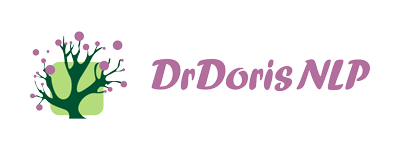5 Ways Emotional Intelligence Can Improve Workplace Relationships
Emotional intelligence, or EI, has been getting more and more attention in recent years, and it’s no wonder why.
As our workplaces become increasingly team-focused, having the ability to effectively handle your own emotions and empathize with others goes a long way toward improving workplace relationships.
While EI can seem like a vague concept or even an oxymoron, there are actually five ways you can improve your EI to better relate to coworkers and lead happier and more successful teams. Here they are.
1) Emotional Intelligence helps you demonstrate empathy
Empathy is the ability to share someone else’s feelings and emotions. This can lead to better work relationships as you learn how to put yourself in another person’s shoes and understand where they are coming from. The more empathy you show, the easier it will be for them to feel comfortable with you, which could improve your business interactions.
Emotional intelligence helps increase self-awareness: Self-awareness is understanding what your personality type is, why it developed that way, and how it influences your behavior.
Understanding yourself better gives you a higher chance of understanding others who have similar personalities or quirks.
You’ll be able to notice when there are clashes happening between two people because of their differences, so you can intervene before anything escalates out of control.
According to a recent report, 90% of top performers have above-average emotional intelligence. It, therefore, makes sense to enhance your EQ levels to help you excel in the workplace.
2) Emotional Intelligence helps navigate difficult conversations
One of the most difficult things about human relationships is having difficult conversations.
If you don’t feel confident or afraid to hurt relationships, you may tend to avoid these conversations.
The key to navigating difficult work conversations at work is to be aware of your emotional intelligence levels and the emotions that drive your reactions.
Be prepared for these interactions by establishing boundaries ahead of time. You can even practice how you will respond with a friend or colleague in a role-play exercise before trying it with someone in your office, a technique we incorporate in our Emotional Intelligence Workshops.
Once you know what you want to say, go through the situation in your head and visualize it so that when it comes time for real-life interaction, there are no surprises
3) Emotional Intelligence helps assess and improvise your communication styles
Emotional intelligence is the ability to identify, assess and control one’s own emotions.
This skill can be very useful in the workplace, as it helps people to understand how their actions affect others.
Having this awareness will help you adjust your communication style in order to have a better relationship with coworkers, clients and customers.
For example, some people might not realize that what they say or do might offend or upset someone else. With emotional intelligence skills, you are more aware of this possibility and would be able to make adjustments for the sake of maintaining healthy relationships with other people.
Emotional intelligence not only helps you to become a better negotiator, but it also empowers you to be creative in the way you communicate with others.
Communication has been essential for winning in any negotiation and achieving any result, so in this way, it is essential for building a truly rich experience for your work life.
4) Emotional Intelligence helps Understand others, without judgment
Passing judgment could lead to resentment, which harms relationships in the workplace. Emotional Intelligence overcomes this.
When we are kind, accepting, and understanding of others, we are able to focus on the positive aspects of their character.
This leads to a better relationship with them than if they had been judged harshly by us. Understanding how our behaviour affects other people helps us treat everyone fairly and respectfully, which is essential for healthy work environments.
If you want to improve your Emotional Intelligence skills in any situation, you can try one or more of these steps:
- Step back and think about what is happening before reacting;
- consider alternative ways of viewing situations or handling conflict;
- make an effort to listen without interrupting or judging someone’s point-of-view;
- be mindful of your own emotions when interacting with another person.
With each of these steps in mind, our Emotional Intelligence programs for professionals and business owners delve deeper into these specific components, to help improve workplace relationships.
5) Emotional Intelligence helps manage your emotions
Emotional intelligence is a person’s ability to recognize their own emotions, as well as the emotions of others. It also helps manage your emotions to stay calm and composed without stress and anxiety.
It can help you better understand what you are feeling and why, so that you can take the necessary steps to solve an issue with less stress.
You will be able to identify which feelings are appropriate for the situation and how to address them in order to feel good about yourself again. Emotionally intelligent people tend to feel happy more often than those who do not have these skills.
Finally,
The workplace can be a challenging and sometimes hostile environment.
It is important to take the time to understand what other people are feeling and why they might be feeling that way.
This will help you have productive conversations about issues, resolve conflicts more quickly, improve your understanding of your colleagues, and build stronger relationships with them.
If you are considering enrolling in the Best Emotional Intelligence Program in India, your search ends here.
Our Emotional Training Programs are led by Dr. Doris, a seasoned professional with 35 years of experience in NLP and Emotional Intelligence.
To know how you can be a student in our next program, fill out our inquiry form to get started!






